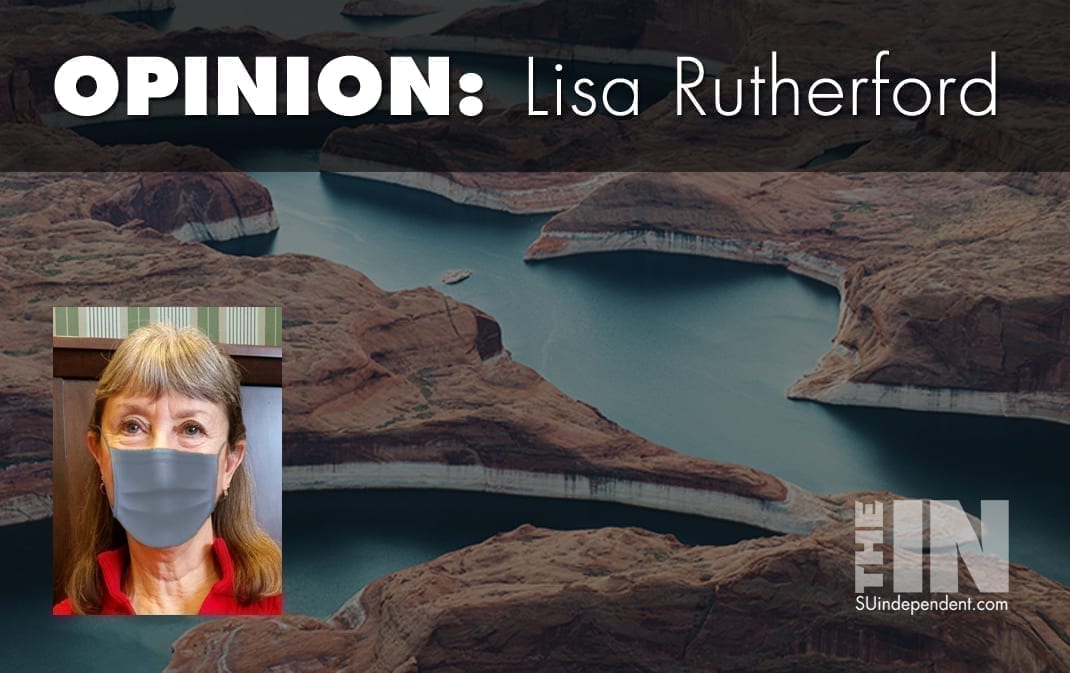
Lake Powell Pipeline Environmental Review Needs Public Involvement
These are troubling times. Issues such as COVID-19 and recent Black Lives Matter protests are making us wonder what’s happening in our country and even locally, raising concern and perhaps making us feel helpless about making a difference. These important matters are not to be taken lightly. There may be little that citizens can do to help solve these big problems but there are other local issues that demand citizen attention—issues citizens may actually be able to influence.
On June 8 the Draft Environmental Impact Statement (DEIS) for the Lake Powell Pipeline (LPP) project was issued by the Bureau of Reclamation for a 90-day comment period. This is an opportunity for all Utah citizens—not just Washington County’s—to weigh in on this project that will impact our lives in many ways.
The 140-mile pipeline from Lake Powell to Sand Hollow Reservoir, engineered to bring over 82,000 acre-feet per year (AFY) of water to our county, would cost several billion dollars. In fact, after fourteen years and $36 million spent on planning we still don’t know exactly how much it will cost but the DEIS latest estimate is $1.8B to $2B, not including finance costs.
According to current law, the state would bond for the project and we would pay the state back as we take the water — water we don’t need. As the state waits decades for Washington County to repay, the money dedicated to bonds could have been used for real needs in this state: education, transportation, healthcare, etc. This state “subsidy” will cost all Utahns and add extra burden to Washington County citizens who will repay the LPP debt through increased water rates, development impact fees, and increased property taxes.
It’s a double whammy for our county’s residents. All for water we don’t need.
Local sources without the LPP will provide nearly 100,000 AFY of water to our county. Many of us are already working to reduce our water use but our county’s use is still over 300 gallons per capita per day — far higher than the 179 gpcd national average achieved by cities in the West already.
LPP proponents blame the high usage on visitors, second homes, temperatures, etc., but other desert cities deal with those same factors. Our high usage is the result of property taxes and impact fees that hide the real cost of water while low water rates encourage high consumption.
The pipeline is a risky deal. Colorado River flows are declining and States that use the river will continue to haggle over who gets what.
So, back to what we can do. Commenting during this 90-day comment period is crucial. Even as I write, President Trump is working to reduce the public’s ability to participate in the decision-making process regarding projects that could cause environmental harm, which is what the LPP could do. Our quality of life in Washington County will not be helped by pouring gasoline on the fire of growth in this county; that’s exactly what the pipeline would do. The LPP is not needed to help our economy or our environment, nor is it needed to keep up with projected growth. Growing cities in the West are already showing that growth and economic vitality do not depend on using more water. We can too.
What can you as a citizen of Washington County do? Go to https://conserveswu.org/ and sign up. Conserve Southwest Utah will be reviewing the nearly 1,000-page DEIS and providing important points for citizen comments, making the process easier for citizens who do not have the time or desire to wade through the DEIS. Is your involvement important? Yes! The key is making “substantive” comments.
Make no mistake! Citizen comments are very important. When Congress passed NEPA in 1970, leaders recognized that each person should enjoy a healthful environment and that each person has a responsibility to contribute to the preservation and enhancement of the environment.
NEPA recognizes that—
“…Federal Government’s actions may cause significant environmental effects. Using the NEPA process, agencies are required to determine if their proposed actions have significant environmental effects and to consider the environmental and related social and economic effects of their proposed actions.”
Let’s all be part of keeping Washington County a great place to live and visit.
Viewpoints and perspectives expressed throughout The Independent are those of the individual contributors. They do not necessarily reflect those held by the staff of The Independent or our advertising sponsors. Your comments, rebuttals, and contributions are welcome in accordance with our Terms of Service. Please be respectful and abide by our Community Rules. If you have privacy concerns you can view our Privacy Policy here. Thank you!
Click here to submit an article, guest opinion piece, or a Letter to the Editor




